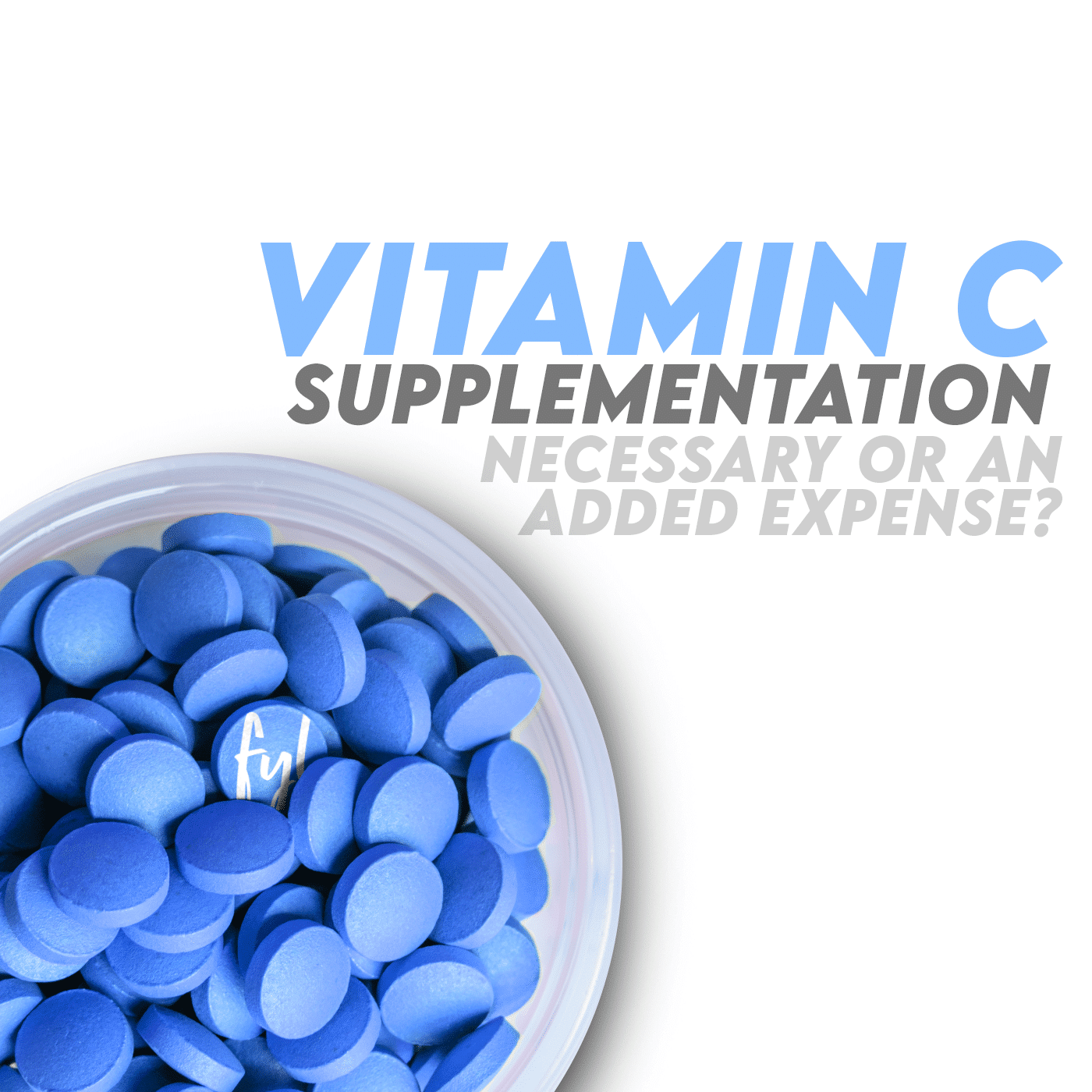Winter is officially here! The cooler weather often brings on talk of ‘keeping your immune system strong’ to ward off unwanted colds and the flu. With this advice, the message of ‘getting enough vitamin C’, is often communicated.
As a result, parents shoot off to the shops and collect those tangy, orange supplements to make sure their kids stay healthy over the winter period. However, many wonder whether we should supplement vitamin C during the cooler months? Is there research to support health claims around vitamin C and our immune system? We are here to answer these questions for you!
First off, let’s talk about WHY it is is so important in the first place.
So, Why Is Vitamin C So Important?
It plays a number of important roles in our body, including:
- Wound healing
- Controlling and protecting against infection
- Production of collagen which forms part of our cartilage, bones, nervous and immune systems
- Assisting in producing certain hormones and chemical messengers used in the brain and nerves
- Assisting with iron absorption. (Harvard School of Public Health, 2020)
Signs of deficiency include scurvy (bleeding gums, loss of teeth and hair, delayed wound healing), fatigue and iron-deficiency anaemia (Harvard School of Public Health, 2020).
Does It Protect Against The Common Cold and Flu?
Vitamin C is widely marketed as a key protector against the common cold and flu. So, what does the research say?
Contrary to popular belief, studies assessing the link between vitamin C and the common cold shows that the nutrient has no significant effect on the common cold or protecting against this. Some research indicates that vitamin C may reduce the severity of symptoms and duration of a cold in some people (Harvard School of Public Health, 2020). For the average person, this is unlikely to make a significant difference.
Are Supplements Necessary?
According to the National Nutrition Survey of Australia, the most common supplement taken by Australians is vitamin C (10% of males, 8% of females). Are they necessary? Well, the same survey revealed that over 95% of Australian’s consume enough vitamin C from their diet alone (Australian Bureau of Statistics, 2015)! Unless you struggle to consume fruit and vegetables and are showing signs of deficiency, then supplementation is not necessary and consuming beyond your recommended daily intake (RDI) shows little to no benefit.
How Can I Get Enough Vitamin C Without Supplements?
Yes, you can meet your RDI through food alone by including vitamin C-rich fruits and vegetables such as:
- Strawberries
- Citrus fruits such as kiwifruit, lemon, oranges and grapefruit
- Tomato
- Capsicum
- Broccoli
- Cauliflower
- Cabbage
- White potatoes (Harvard School of Public Health, 2020)
Did you know, it only takes 1 cup of strawberries, broccoli or cauliflower or 1 kiwi fruit to meet > 100% of the recommended daily intake of vitamin C? That’s how easy it is! Try to include some of these vitamin C-rich foods by:
- Adding strawberries or kiwi fruit to your cereal or yoghurt
- Including > 1.5 cups mixed vegetables at dinner time, including some of the above vitamin C-rich veggies such as capsicum and cauliflower
- Adding tomato or capsicum to a sandwich, wrap, salad, wholegrain crackers or an omelette
- Enjoying fruit as a snack
- Creating vegetable fritters or frittata with broccoli, cauliflower and potato
- Adding strawberries or orange slices to a salad.
Ultimately, we can meet and well and truly exceed our daily vitamin C requirement by including plenty of fruits and vegetables throughout the day. Supplements are not necessary unless recommended by your doctor or dietitian.
Are you interested in learning more about nutrition? Get in contact with one of our brilliant dietitians today via our website!







